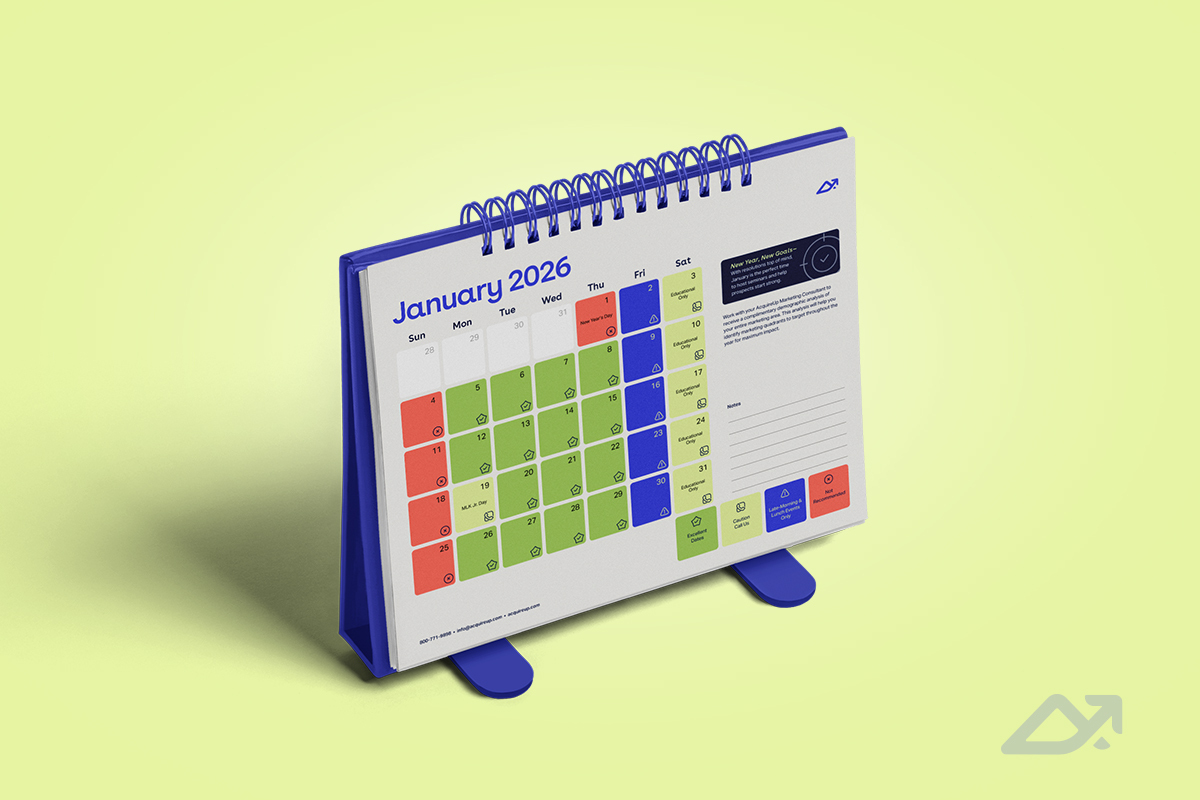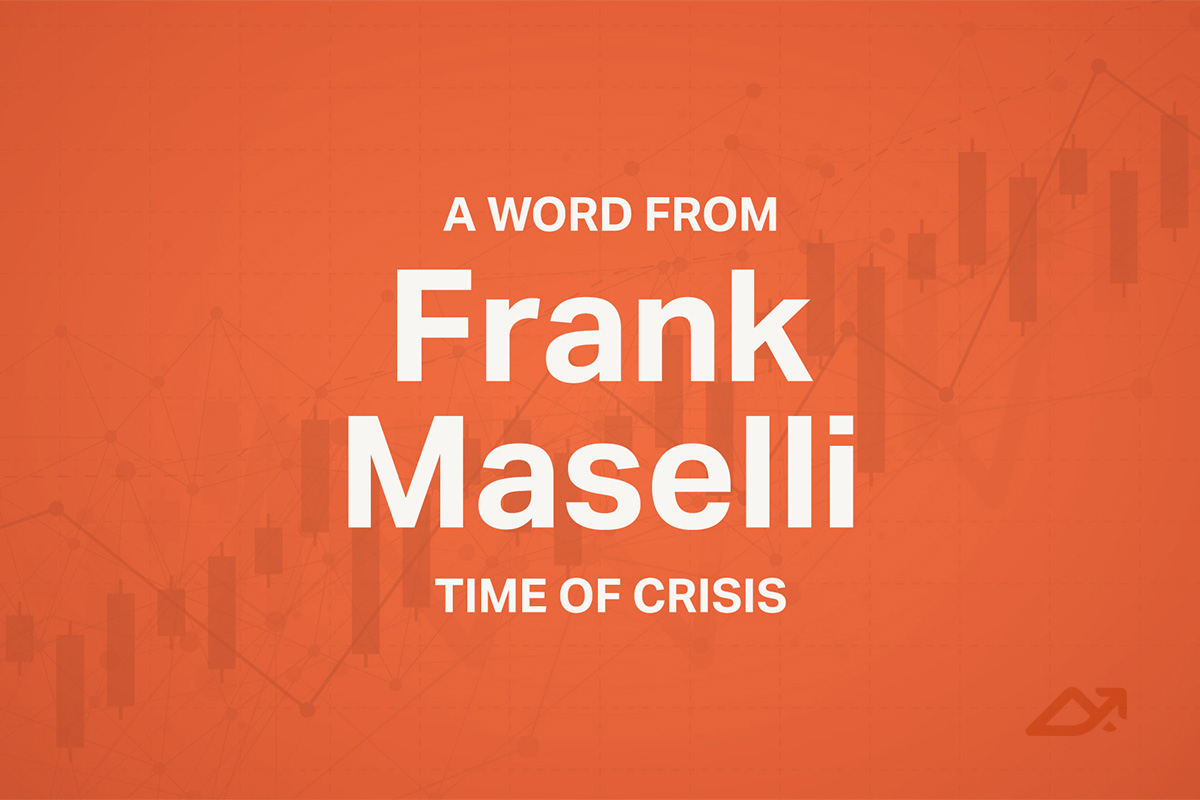The conference room is set. Coffee is brewing. Your presentation is polished to perfection. But as the clock strikes 7 PM, you're staring at a sea of empty chairs with only three attendees—two of whom are your existing clients who came out of pity, and one person who clearly wandered in looking for the AA meeting next door.
Welcome to the graveyard of dead seminars, where good intentions go to die and marketing budgets disappear into thin air.
If this horror story sounds familiar, you're not alone. Across the financial advisory landscape, countless seminars are meeting their demise, leaving advisors wondering what went wrong. The truth is, most seminar failures aren't due to bad content or poor presentation skills—they're killed by fundamental marketing mistakes that are entirely preventable.
This Halloween season, let's perform an autopsy on failed seminars and learn how to bring your educational events back from the dead.
The Silent Killers of Seminar Success
1. The Curse of Generic Timing
Many advisors schedule seminars like they're planning a casual dinner party—picking dates that work for them without considering their audience. Tuesday at 2 PM might be perfect for your schedule, but if your target demographic includes working professionals, they may be stuck in meetings or picking up their kids from school.
The resurrection strategy: Research your ideal client's schedule. Retirees and pre-retirees often prefer morning or early afternoon sessions on weekdays. Working professionals typically respond better to evening sessions (6:30-7 PM) or weekend mornings. During October's Estate Planning Awareness Month, capitalize on the natural urgency by scheduling sessions in the first three weeks when people are motivated but not yet overwhelmed by holiday preparations.
2. The Single-Channel Curse
Many advisors put all their eggs in one basket—posting about their seminar on social media and calling it a day, or sending one email blast to their existing database. When registration numbers are dismal, they assume seminars don't work. The reality? Their marketing approach was dead on arrival.
The resurrection strategy: Successful seminar marketing requires a multi-channel attack. Targeted digital advertising on Facebook and Google puts your event in front of prospects who've never heard of you but fit your ideal client profile perfectly. Direct mail hits mailboxes in strategic zip codes, reaching people who might not be scrolling social media but are prime candidates for estate planning guidance. Email nurtures your existing database and keeps your event top-of-mind. Each channel reaches different segments of your target audience, and when combined, they create the critical mass needed to fill your room. The advisors filling 25-40 seats per seminar aren't doing anything magical with their topics—they're simply investing in comprehensive marketing that actually reaches their prospects where they are.
3. The Invisible Marketing Ghost
Perhaps the deadliest sin of all: assuming that if you build it, they will come. Many advisors create beautiful invitations, post once on social media, and then wonder why nobody shows up. Your target audience is busy, distracted, and probably doesn't even know your seminar exists.
The resurrection strategy: Multi-channel promotion is non-negotiable. Start your campaign 3-4 weeks before the event with an email announcement to your database. Follow up weekly with value-driven content related to your topic. Use social media to share estate planning tips throughout October, building anticipation for your deeper-dive seminar. Partner with local CPAs, elder law attorneys, or other professionals who can cross-promote to their networks. Don't forget the power of direct mail for reaching prospects who aren't yet in your digital ecosystem.
4. The Bait-and-Switch Specter
Nothing kills attendance faster than misleading marketing. If your promotional materials promise "education" but prospects sense they're walking into a sales pitch, they'll ghost you before you can say "free consultation."
The resurrection strategy: Deliver genuine value first. Your seminar should be 95% education and 5% soft introduction to your services. Share actionable strategies, real case studies (anonymized), and tools they can use immediately. When you've provided substantial value upfront, the natural next step is for engaged prospects to want to continue the conversation privately.
The Necromancy of Successful Seminars
Create Urgency Through Timing
October presents a perfect storm of urgency for estate planning seminars. National Estate Planning Awareness Month creates natural conversation starters. The approaching year-end gives prospects a deadline for taking action on tax-related strategies. The back-to-school season means families are already thinking about their children's futures. Frame your seminar around these natural urgencies.
Build Trust Through Social Proof
Nothing resurrects credibility like evidence that others have benefited from your expertise. Include testimonials from previous seminar attendees in your promotional materials. Share success stories (with permission) that demonstrate the value of your advice. If you're new to seminar marketing, start with client appreciation events that educate and ask satisfied clients to invite friends.
Master the Follow-Up Ritual
The seminar itself is just the beginning. The real magic happens in the follow-up. Have a clear next step ready for engaged attendees—whether that's a one-on-one consultation, a more advanced workshop, or access to additional resources. Capture contact information during registration and follow up within 48 hours while your presentation is still fresh in their minds.
Breathing Life into Your Marketing
The Pre-Mortem Strategy
Before launching your next seminar, conduct a "pre-mortem." Imagine your seminar fails spectacularly and work backward to identify all the things that could go wrong. Did you pick a topic that's too broad? Is your timing competing with major local events? Are you relying on a single marketing channel? By identifying potential failure points in advance, you can resurrect your strategy before it's too late.
Digital Marketing: Your Most Powerful Resurrection Tool
The most successful advisors have abandoned the "hope and pray" approach of relying on referrals and word-of-mouth to fill their seminars. Instead, they're leveraging targeted digital marketing and direct mail to reach prospects they've never met—people who are actively searching for the solutions they provide.
Targeted Digital Campaigns: The beauty of digital advertising is meeting prospects where they already spend their time. Baby Boomers and Gen X—your prime estate planning audience—are active on Facebook daily, making it an ideal platform to promote your seminars. Instead of hoping the right people stumble across your seminar, you can use Facebook to strategically position your message in front of the demographics most likely to need your services, right where they're already scrolling and engaging.
Direct Mail That Actually Works: While other advisors wait for referrals that may never come, smart advisors are filling seminar seats through strategic direct mail campaigns. A well-designed mailer targeting the right zip codes and demographics can generate 20-30 attendees per seminar—attendees who chose to come because they're genuinely interested in your topic, not because their friend asked them to do a favor.
The Power of Consistent, Proactive Marketing: Instead of casting a line and hoping for a bite, successful advisors are casting a wide, strategic net. They're using email sequences, social media content, and educational blog posts to build awareness and trust before prospects ever step foot in their seminar room. This proactive approach means you're not dependent on the unpredictable timing of referrals—you're creating your own pipeline of interested prospects.
Data-Driven Optimization: The beauty of digital marketing and direct mail is that everything is measurable. You can track which audiences respond best, which messages generate the most registrations, and which marketing channels provide the highest return on investment. This data allows you to continuously improve your approach, making each seminar more successful than the last.
Don't Let Your Seminars Rest in Peace
The graveyard of dead seminars is filled with good intentions and missed opportunities. But unlike real graveyards, failed seminars can be resurrected with the right strategy, timing, and execution.
This October, as the veil between marketing success and failure grows thin, take the lessons from seminars past and breathe new life into your educational events. Your future clients are out there, searching for the expertise you provide. Don't let poor planning and weak promotion bury your opportunity to connect with them.
The question isn't whether you should be doing seminars—it's whether you're ready to do them right. Because in the world of financial advisory marketing, there's nothing scarier than a room full of empty chairs when you know it should be packed with engaged prospects ready to become your next great client relationship.
Ready to resurrect your seminar strategy? The first step is acknowledging what's been killing your attendance. The second step is implementing a systematic approach that turns educational events into reliable lead generation engines.
After all, the only thing that should be dead about your seminars is your competition's chances of reaching those prospects first.
Get 20 Questions: A Tactical Prep Guide for Financial Seminars and turn Q&A into the most compelling moment of your seminar.





.jpg)
.png)
.png)

.jpg)


.png)
























